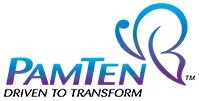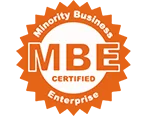Choosing the right tech career path can be a daunting challenge. There are so many industries that need technology experts from aerospace, science, media, AI and animation to name just a few. Zeroing in on your skills and options is essential for discovering the job that will be most rewarding to you.
First off, don’t be afraid to dream. Because we must spend so much of our time at work, identifying the subject matter that most interests you and allows you to develop skills that you enjoy using is important. Consider hobbies you enjoy or subjects that hold your attention. If you’re having trouble identifying your key assets, take a career assessment. There are some good ones specific to tech careers at Thinkful.com, Xccelerate.co, and Skillcrush.com.
Next, you’ll need a good understanding of the current job market. Research job postings and trends by searching the internet and niche markets. Look for overlap in your skills and what’s currently available in jobs. If you already have experience in a particular industry, switching to a tech job within that industry may not be as hard as you think, and you’ll have a shorter learning curve. Not every job will require you to go back to school. Some skills can be learned on the job, through bootcamps for tech skills, online courses, or two-year degrees. If you are making a career switch, you may have to start with an entry-level position and work your way up. With pre-trained, insider knowledge and switching to technology related to your industry, that might not be the case.
To narrow down your goals, make a list of your options. Write down all the positions you think might be a good fit for you and what it would take to get there. List out the job opportunities that you’re seeing and their requirements, the education you might need if you don’t already have it and the career pathways you might pursue to get to the job you want.
Once you’ve found the role that you’re curious about, do an informational interview with someone who has that job. People love to talk about themselves, and tech professionals are no exception. Asking someone to coffee or if they are willing to answer a few questions via phone or email are good ways to gain insight on the work environment, the types of people you will be working with and find out about ways to enhance your skills. You can also find out if the work is enjoyable and how people achieve a work-life balance. For ideas on who to contact, consult your college alumni association for the program you studied. Someone could be working in the role that you’re curious about. Another option is to network through a professional association or contact someone through LinkedIn. Asking a mentor for advice can also be useful.
Consider the pace at which you’d like to work. For a slower pace with long-term prospects, look at the tech giants. For fast-paced, exciting ventures, look at start-ups. Some tech professionals advise against going it alone as a software developer as collaboration and interaction are key and raising funds for such a project can be difficult. And while computer programming is a popular and lucrative career choice, it requires very detail-oriented work and poring over line after line of coding that takes months to write. Not all computer programmer positions require this though. For example, graphics and animation positions don’t require you to spend your days doing this. Also keep in mind whether you are an introvert or an extrovert. You’ll find tech jobs that require you to work with a team and others that center more on independent work. So don’t forget to ask about personality types that work best for your role in your informational interview.
Once you’ve done your homework, apply to a job that interests you, get hired and get to work. If this branch of work isn’t for you, you can use the skills and network connections you’ve gained from your new job to find something else to try. Lastly, don’t forget to explore the SheTek Community’s live events and recordings for inspiration. Happy hunting!








Blog comment section